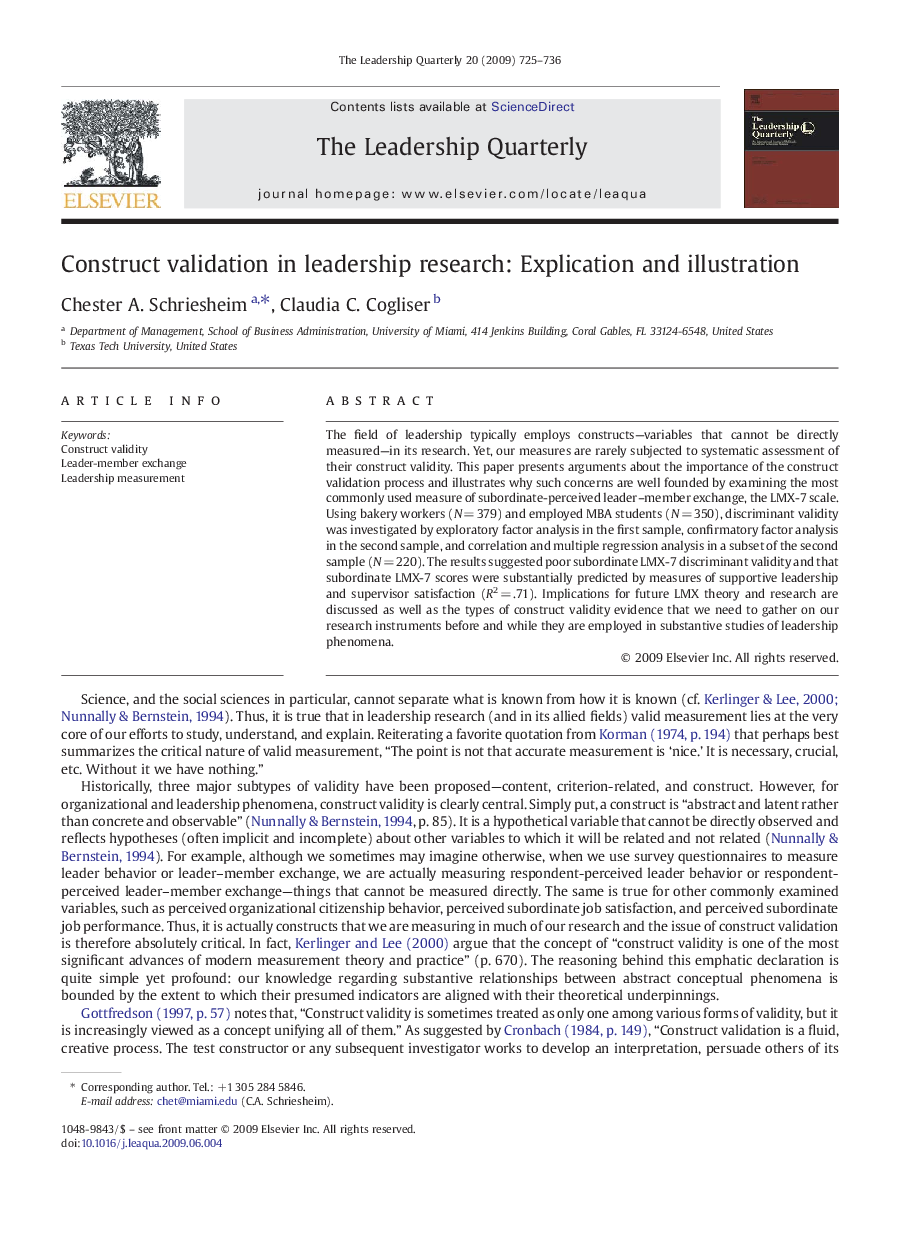| Article ID | Journal | Published Year | Pages | File Type |
|---|---|---|---|---|
| 888173 | The Leadership Quarterly | 2009 | 12 Pages |
The field of leadership typically employs constructs—variables that cannot be directly measured—in its research. Yet, our measures are rarely subjected to systematic assessment of their construct validity. This paper presents arguments about the importance of the construct validation process and illustrates why such concerns are well founded by examining the most commonly used measure of subordinate-perceived leader–member exchange, the LMX-7 scale. Using bakery workers (N = 379) and employed MBA students (N = 350), discriminant validity was investigated by exploratory factor analysis in the first sample, confirmatory factor analysis in the second sample, and correlation and multiple regression analysis in a subset of the second sample (N = 220). The results suggested poor subordinate LMX-7 discriminant validity and that subordinate LMX-7 scores were substantially predicted by measures of supportive leadership and supervisor satisfaction (R2 = .71). Implications for future LMX theory and research are discussed as well as the types of construct validity evidence that we need to gather on our research instruments before and while they are employed in substantive studies of leadership phenomena.
